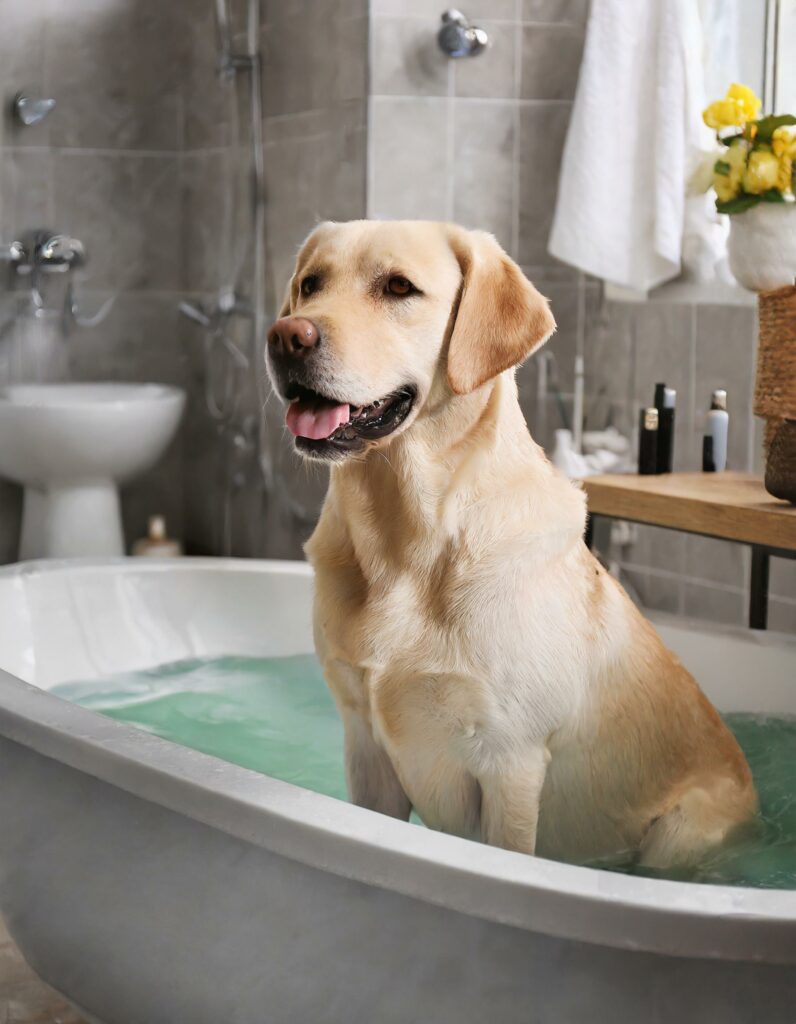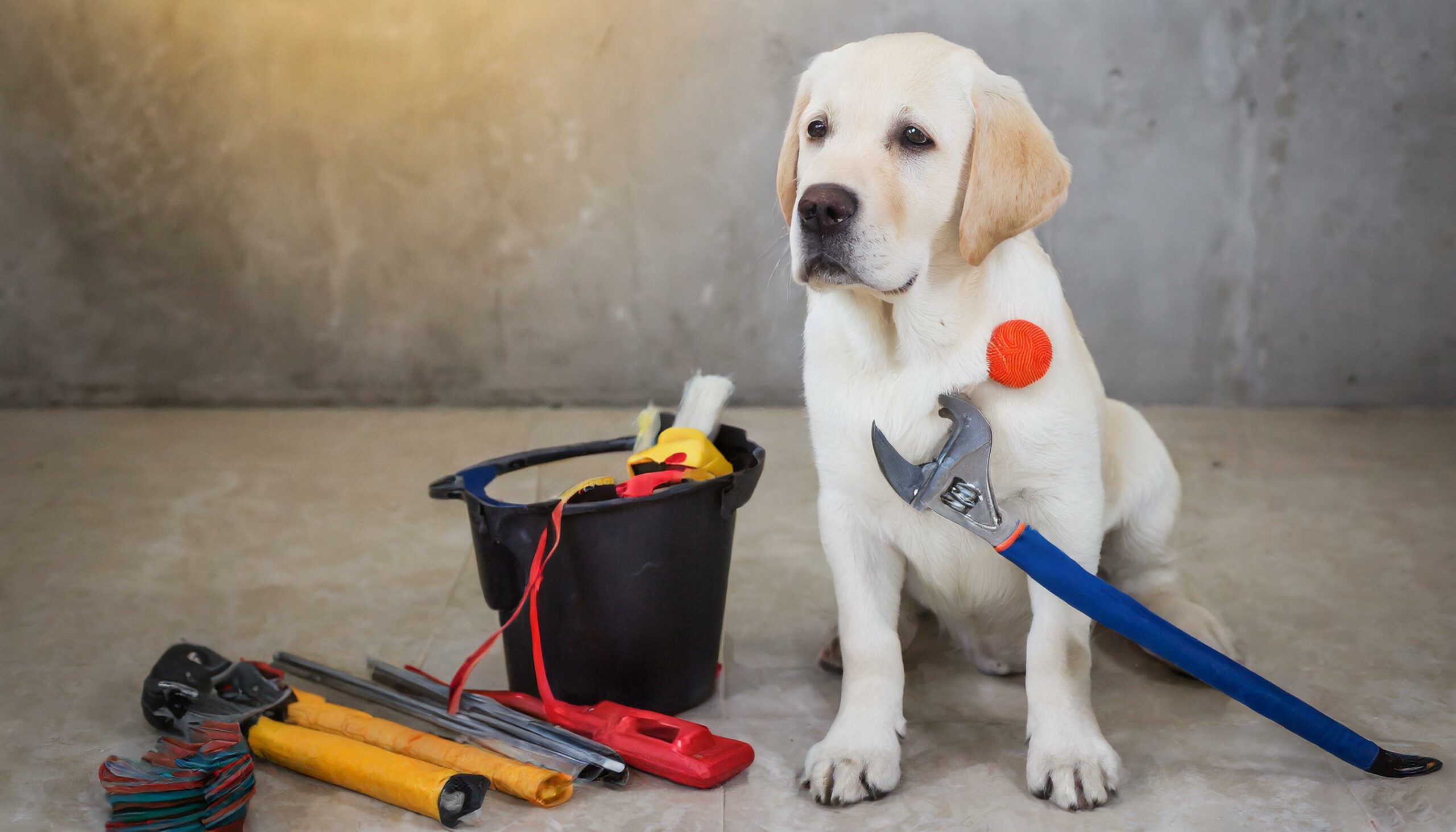Labrador Retrievers, with their friendly demeanor and intelligence, are one of the most beloved dog breeds worldwide. Often chosen for their adaptable and affectionate nature, potential Labrador owners commonly wonder about the maintenance level required for this breed. This article explores whether Labradors are high maintenance, examining aspects from grooming to healthcare, to help you determine if a Labrador is the right companion for your lifestyle.
Grooming Needs
Despite their reputation as relatively low-maintenance dogs, Labradors do have specific grooming requirements that are essential for their well-being. They possess a double-layer coat consisting of a soft undercoat that helps regulate their body temperature and a water-resistant outer coat. This combination requires regular maintenance, particularly during shedding seasons.

Coat Care
Labradors are moderate shedders, with increased shedding typically occurring twice a year. Regular brushing, at least twice a week, is recommended to remove loose fur and distribute natural skin oils, which help maintain the coat’s luster and health. During peak shedding seasons, daily brushing may become necessary to manage the increased hair loss.
Bathing Frequency
Labradors do not require frequent baths, but it is advisable to bathe them every two to three months or more often if they get especially dirty. Over-bathing can strip their coat of natural oils, so using a mild dog shampoo is crucial. Ensuring they are thoroughly dry, particularly in colder weather, is also important to prevent skin infections.
Exercise Requirements
Labradors are known for their energy and enthusiasm, requiring ample exercise to maintain their health and happiness. Neglecting their physical needs can lead to behavioral issues and obesity, which can exacerbate health problems like joint pain and heart disease.
Daily Exercise
A daily exercise routine should include a mix of activities such as walking, running, and playing in a secure area. Labradors are particularly fond of retrieval games and water activities, making them great companions for active families. Ideally, a Labrador should get at least one hour of exercise per day, with more vigorous activities included several times a week.
Mental Stimulation
In addition to physical exercise, Labradors require mental stimulation to prevent boredom and destructive behaviors. Puzzle toys, training sessions, and interactive games are excellent ways to engage their minds. Regular training sessions reinforce obedience and strengthen the bond between the dog and its owner.
Training
The trainability of Labradors is one of their most appealing traits. They are eager to please and quick to learn, which makes training them an enjoyable and rewarding process.
Obedience Training
Basic obedience training should begin early in a Labrador’s life. Teaching commands such as sit, stay, come, and heel helps in managing their behavior both at home and in public. Positive reinforcement techniques, such as treats and praises, are highly effective in training Labradors.
Advanced Training
For owners interested in more than basic commands, Labradors excel in advanced training and dog sports. Activities like agility, tracking, and dock diving can provide excellent physical and mental exercise and are enjoyable for both the dog and owner.

Health Care
Maintaining the health of a Labrador involves regular veterinary care and attention to diet and exercise.
Diet and Nutrition
A balanced diet tailored to their age, size, and activity level is essential for Labradors. High-quality dog food that meets their nutritional requirements without overfeeding is crucial, as obesity is a common issue in the breed. Treats should be given sparingly and should not constitute more than 10% of their daily caloric intake.
Regular Veterinary Visits
Annual health checks are recommended for Labradors, with more frequent visits for puppies and older dogs. These check-ups help in early detection and management of potential health issues, such as hip dysplasia, heart disorders, and ear infections, which Labradors are predisposed to.
Social Needs
Labradors are highly social creatures that thrive on human interaction. They integrate well into family life and are known for their friendly nature.

Family Integration
Labradors are excellent family pets, known for their patience and gentleness with children. They are social animals who prefer to be involved in family activities and do not like being left alone for long periods.
Interaction with Others
Typically, Labradors are friendly with strangers and get along well with other animals, making them poor guard dogs but excellent companions. Socialization from a young age is important to ensure they are well-adjusted and confident in various situations.
Conclusion
While Labradors require a fair amount of maintenance in terms of exercise, grooming, and social interaction, their adaptable nature and eagerness to please make them manageable for many households. The commitment to meeting their needs can result in a loyal and affectionate companion who is well worth the effort.
FAQs
How long do Labradors typically live?
Labradors typically live between 10 to 12 years, though this can vary based on their health and lifestyle.
Can Labradors live in small apartments?
While Labradors can adapt to apartment living, they require sufficient daily exercise and space to move around.
How much food should a Labrador eat daily?
The amount of food a Labrador should eat varies based on their age, size, and activity level. Consultation with a vet is advisable to create a tailored feeding plan.
Are Labradors good with other pets?
Yes, Labradors are generally good with other pets, especially when raised together or properly socialized.
What are the best activities for Labradors?
Retrieval games, swimming, and hiking are among the best activities for Labradors due to their high energy levels and love for outdoor activities.
This article provides a comprehensive guide to understanding the maintenance needs of Labradors, ensuring they live a healthy, happy life as part of your family.
